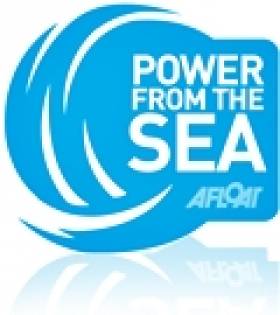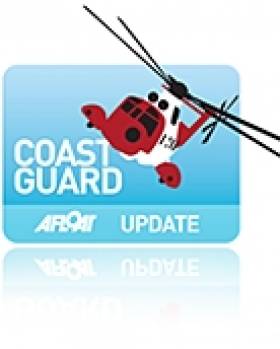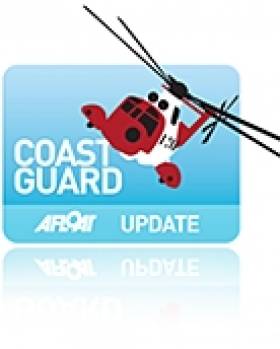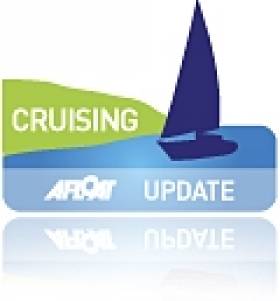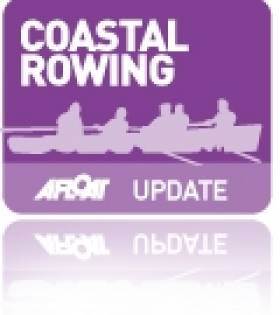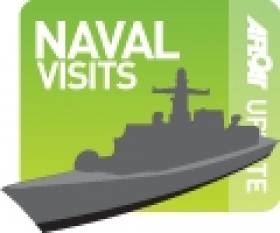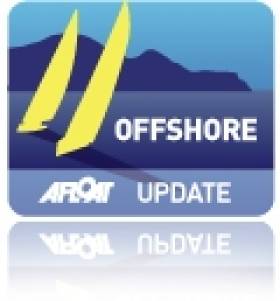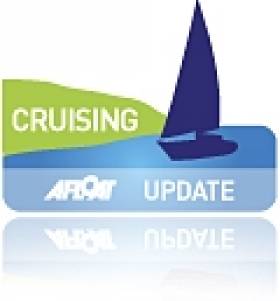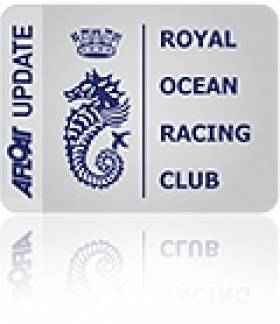Displaying items by tag: Atlantic
Results of 2011 Atlantic Licensing Round Announced
A total of twelve companies are involved in the thirteen awards. The companies involved include both new entrants to Ireland, together with companies already active in the Irish offshore. The seven new companies that will be offered acreage are: Antrim Energy; Bluestack Energy; Europa Oil & Gas; First Oil Expro; Petrel Resources; Repsol Exploration; and Two Seas Oil & Gas Ltd. The five companies already active in Ireland are: Providence Resources Plc; Chrysaor; Serica Energy; Sosina Exploration and San Leon Energy.
In welcoming the interest shown Minister Rabbitte said "Ireland needs to see an increase in exploration activity and exploration drilling in particular, if the petroleum potential of our offshore is to be realised. The positive outcome of the 2011 Atlantic Margin Licensing Round will help bring a new momentum to the level of exploration activity in our offshore. Ireland must continue to communicate the message to international exploration companies that Ireland is open for business and that the Irish offshore has real potential."
Irish Vessels Asked to Keep Lookout for Missing Yacht
Ships off Ireland's south and west coasts have been asked by the French coastguard to keep a lookout for a yachtsman who has gone missing on a transatlantic voyage.
In a report that has echoes of missing yacht The Golden Eagle - which sailed into Kerry after an Atlantic crossing from Bermuda many days after schedule - RTÉ News says that the 12-metre yacht La Galatee left French Guiana on 5 August sailing for St Malo in France, but the French coastguard has lost contact with the vessel.
No air and sea searches are being considered at this time, but Irish Coast Guard stations are broadcasting alerts and requests for sightings of the yacht.
Missing Bermuda Yacht Arrives Safely in Co Kerry
A yacht that was reported missing in the Atlantic between Bermuda and Ireland sailed safely into port in Co Kerry this afternoon.
As previously reported on Afloat.ie, the Golden Eagle has been at the centre of an air and sea search operation since failing to arrive at its expected destination of Crookhaven in Co Cork on 15 September.
The yacht - crewed by a 69-year-old Norwegian and a 60-year-old New Zealander - had been out of radio contact since leaving Bermuda in mid August.
But a spokesperson for the Irish Coast Guard has since revealed that the men intentionally turned off their handheld VHF radio to save battery power until they were close to port.
The boat dropped anchor in Portmagee, Co Kerry at 3pm this afternoon, reporting only minor damage to its sails and rigging due to adverse weather which slowed their progress.
More from RTE here.
200 Crews for Atlantic Rally for Cruisers 2011
Rower Calls a Halt to Atlantic Crossing
An Irish rower last week cut short his attempt to cross the Atlantic from Newfoundland to Ireland.
Sean Moriarty told CBC News that he called for a rescue after two days at sea when his boat was flipped repeatedly in four-metre waves, damaging his electronic equipment.
Moriarty and his boat - the unfortunately named Positive Outcome - were picked up by a Canadian coastguard vessel and towed to St John's in Newfoundland on 13 June.
The Dingle native, who runs a construction firm, plans to ship his boat back home to Ireland.
Seascapes Highlights Two Atlantic Voyages
This week's edition of Seascapes on RTÉ Radio 1 features accounts of two very different voyages across the Atlantic.
Presenter Marcus Connaughton hears from Pat Hanafin who is currently crossing the pond on board the US Coast Guard clipper Eagle, which as previously reported on Afloat.ie is due to call at Waterford on 27 May ahead of the Tall Ships Races.
The show also features news of a group of sailors hoping to retread the route of St Brendan's famous voyage.
A crew of "mariners, poets and musicians" will set sail from Dingle on 16 May - St Brendan's Day - on the 45ft vessel An Seachrán, heading up the west coasts of Ireland and Scotland towards Iceland.
The latest edition of Seascapes is available to listen HERE.
Tripartite Naval Visitors for Dublin Port
Naval vessels from France, Canada and Belgium are due to make calls to Dublin Port over the weekend, writes Jehan Ashmore.
The first visitor to dock tomorrow will be the Latouche-Tréville (D646) a F70 type anti-submarine frigate of the French Marine Nationale. She is one of seven F70 ASM class anti-submarine frigates and is capable of carrying two 2 Lynx helicopters. In June 2010 the frigate visited London where the 1984 built 3,550 tonnes vessel moored alongside the WW II cruiser, HMS Belfast.
Also due to arrive tomorrow is the Canadian Navy's HMCS St. John's which too is to berth at Ocean Pier. HMCS St. John's (340) is the eleventh 'Halifax' class frigate, measuring some 4,770 tonnes. The multi-role patrol frigate was commissioned in 1996 in St. John's, Newfoundland and is designed to perform three distinct functions: anti-submarine warfare, anti-air warfare and anti-surface warfare.
On Sunday the third international naval visitor to Dublin Port will be the Belgium Navy's Léopold I (F930). This frigate is based in the Quartier Naval Base in Zeebrugge and in 1997 she was commissioned into service in a ceremony by Belgium's Queen Fabiola.
The 2,800 tonnes frigate is capable of taking two helicopters and the vessel can cruise at 21 knots using two diesel engines or is capable of reaching a top speed of 30 knots based from gas turbine power-plants. Léopold I has participated in NATO's Response Force (NRF). For a detailed visual discription of equipment click this link here
Two Irish Boats for Transatlantic Race 2011
Two big names in Irish offshore racing are among the 30-boat fleet preparing for the Transatlantic Race 2011 (TR 2011) this June. Last night the organisers, the Royal Yacht Squadron, New York Yacht Club, Royal Ocean Racing Club and Storm Trysail Club, extended the deadline to enter the Race to March 31, 2011.
Adrian Lee's Cookson 50 from Dublin Bay and the Limerick Volvo 70 skippered by Ger O' Rourke's both make the entry list although the Shannon estuary's Chieftain is described only as a 'provisional' entry. For Entry list click HERE.
With the Transatlantic fleet now over 30 entries and many new inquiries following the success of the RORC Caribbean 600 - part of the companion Atlantic Ocean Racing Series - the organisers encourage those interested to enter the TR 2011 as soon as possible to secure a spot since the Notice of Race notes a maximum of 50 yachts for the race.
The TR 2011 will cover 2,975 miles from Newport, R.I., to the Lizard in England. The focus of pre-race activities will be the New York Yacht Club's Harbour Court clubhouse in Newport, R.I. There will be three staggered starts from June 26 to July 3. The awards ceremony on August 9th and other post-race activities will be held at the Castle, the home of the Royal Yacht Squadron in Cowes, England.
The fleet will include IRC Racing, IRC Racer/Cruiser, Classic and Open divisions with a minimum length overall (LOA) of 40 feet and no maximum. Competition is building within several segments of the diverse fleet, notably the 100' and up range which includes Sojana, Rambler 100, ICAP Leopard, and Maltese Falcon.
Tight racing is also expected in other classes and divisions, such as yachts in the under 50' range in IRC Racing and IRC Racer/Cruiser including the Class 40s - Concise 2, Dragon, and Kamoa'e, the Rogers 46s - Shakti and Varuna, as well as British Soldier ASA, Jacqueline IV, Sasha, Dawn Star, and Carina. For a complete list of entries click here.
All race documents are available HERE.
The TR 2011 is the centerpiece of the Atlantic Ocean Racing Series (AORS), and is organized in concert with the following clubs: Royal Malta Yacht Club, Annapolis Yacht Club, Ida Lewis Yacht Club, Montego Bay Yacht Club, Naval Academy Sailing Squadron, Jamaica Yachting Association, Antigua Yacht Club and Real Club Nautico de Sanxenxo.
Two races in the AORS have been completed: the Pineapple Cup - Montego Bay Race and the RORC Caribbean 600. The Pineapple Cup, from Ft. Lauderdale, Fla. to Montego Bay, Jamaica, a distance of 811 miles, was won by Genuine Risk, a 97-foot canting keel super maxi skippered by Hugo Stenbeck. In the RORC Caribbean 600, George David's Rambler 100, took line and overall IRC honors and set the monohull record of one day, 16 hours, 20 minutes and 2 seconds for the course's 600 miles.
Historic Trophy for South Pacific Dream Cruise
Fergus and Kay Quinlan live in the Burren in County Clare, and in 1997 they launched the steel van de Stadt 12-metre cruiser Pylades, which they'd built themselves. They've made several voyages and have been in the Irish Cruising Club's award list before. But at the ICC's AGM in the National YC on February 18th they deservedly got the big one, the Faulkner Cup, for the first stage of a global circumnavigation which began from their home port of Kinvara in the summer of 2009, and a year later they'd reached Tahiti.
Their cruise continues, so the award was made in absentia. Adjudicator Brian Cudmore of Cork made the point that their informative log included much general and often entertaining information, and it becomes even more interesting the further you got into it, so he's keenly anticipating the next inmstalment.
The Strangford Cup for an alternative best cruise could not have been more different, both in location or boat type. The 44ft Young Larry may have been built of steel in 1995, but she was based fairly precisely on the design of a gaff cutter built in 1907. And though the rig has been made more manageable through being a yawl, even the mizzen is gaff-headed, while the main sets a topsail. Not the most-easily handled rig for challenging seas, you might well think, but Maire Breathnach (originally from Dungarvan) and her partner Andrew Wilkes, crewed by Maire's niece Sibeal Turraoin, took Larry Og – which looks for all the world like a smaller Asgard I – right through the Northwest Passage to Alaska, an extraordinary one-season achievement.
The ICC members logged some other notable Atlantic voyages, with Michael Coleman of Cobh, a Port of Cork Pilot before he got the free bus pass, making a fine Atlantic triangle to the Azores, then Newfoundland, and so home to Cork, visiting many islands with his well-found 1988 Oyster 53 Oyster Cove. It was all done with a crew of average age 66, senior member Tom Noonan aged 76, and worthy winners of the Atlantic Trophy.
Over the years since its foundation in 1929, the Irish Cruising Club has become the trustee and adjudicator of many trophies, twenty in all, and two of them were special presentations in 2010. The Donegan Memorial Trophy went to Ruth Heard, an ICC member since 1967. She has cruised both to the Azores and Iceland, but is honoured this year in celebration of her remarkable contribution to the rebirth of the inland waterways, and to mark the re-opening of the Royal Canal. Ruth Heard was on the crew of Harklow, the last boat to transit the Royal in 1954 before its half century of official closure which was gloriously reversed in 2010.
And once upon a time, the ICC was the organiser of Ireland's Admiral's Cup campaigns. Though many members still race offshore as individuals, the club has long since focused totally on cruising. But it has a general trophy, the John B Kearney Cup for Services to Irish Sailing, and for 2010 it was awarded with acclamation to the successful Irish Commodore's Cup Team.
- Faulkner
- Cruise
- Cruising
- Cup
- Club
- Quinlan
- Kay
- Fergus
- ICC
- National
- yacht
- cub
- YC
- Cudmore
- Cork
- Breathnach
- Alaska
- Asgard I
- Strangford
- Burren
- Pylades
- Northwest
- Passage
- Wilkes
- Sibeal Turraoin
- Coleman
- Atlantic
- Cobh
- Newfoundland
- Oyster Cove
- Oyster
- Donegan
- trophy
- Ruth Heard
- John B Kearney
- Cup
- Commodore's
- gaff
Carrickfergus Navigator Ian Moore Plots Aegir Caribbean Course
On loan from the Oracle America's Cup Team, Northern Ireland ace navigator Ian Moore is the navigator on board the Carbon built 80-footer Aegir for this week's RORC race in the Caribbbean.
Antigua Yacht Club is buzzing with excitement, with two days to go to the start of the 600-mile race around the central Caribbean. Yacht crews are busy at work making final preparations for the Royal Ocean Racing Club's (RORC) Caribbean 600. Falmouth Harbour is an impressive sight with the RORC fleet safely moored up next to the yacht club.
RORC Yacht of the Year ready for battle
Piet Vroon's Ker 46, Tonnerre de Breskens - the RORC 2010 Yacht of the Year - arrived just before dusk on Friday. The delivery crew, all six of whom will also be racing, endured a 1,000 mile beat to Antigua from Jamaica: "This will be our fourth and final event in the Caribbean." Explained Piet Vroon. "This is the first time that I have done this race and it is the main reason that we came to the Caribbean. All of my crew said that this is a race that they want to do and I am very much looking forward to it."
Tonnerre is one of three boats that competed in the Pineapple Cup, the opening rubber of the Atlantic Ocean Racing Series. George David's Rambler 100, Richard Oland's Vela Veloce and Hugo Steinback's Dubois 90, Genuine Risk also competed in the Pineapple Cup which Genuine Risk won on corrected time. Vela Veloce is a Southern Wind 52, which cleaned up in Key West race week in January.
Entries from Australia and 14 other nations
Yachts representing 15 Nations have come to Antigua to compete in the 600-mile spectacular, but none have come as far as Chris Bull's Cookson 50, Jazz. The canting-keel flyer arrived in Antigua on Friday, having made an epic journey bycontainer ship and sail from Australia, after a fantastic performance in the Rolex Sydney Hobart.
"It's been hard work getting the boat here from Australia, but we have done it, which just goes to show it is possible." Commented Boat Captain, Anthony Haines. Jazz's journey started on January 8th from Sydney, Australia to Savannah, Georgia. After which the delivery crew sailed 1400 miles to get Jazz to Antigua on time.
"Ever since the RORC conceived the idea of this race I have wanted to do it," said Chris Bull on he dock in Antigua. "I am also keen to do the Transatlantic Race and try and win the Atlantic Ocean Racing Series which I think is an excellent initiative which the RORC are involved with."
Rock Stars and Corinthian Sailors Rub Shoulders
From Lithuania, the Volvo 60, Ambersail debuts in the Caribbean and counts veteran round the world sailor Magnus Olsen in their crew. Ambersail is well travelled, having competed in last year's Sevenstar Round Britain and Ireland Race and the Rolex Middle Sea Race.
Ondeck's Farr 65, Spirit of Minerva counts British solo-sailor Hannah White amongst the crew: "Effectively there are 10 legs and well over 600 miles of racing in fantastic trade wind conditions which I am sure will be a strong test for navigators and crews in equal measure." Commented Hannah.
Class 40 World Champions on the line
Six Class 40s are expected, possibly more. Tony Lawson's Concise and Gonzalo Botin are past and current Class 40, world champions. Tony Lawson, owner of Concise expects a close duel with Tales: "There is no doubt that the Spanish team will be fast and possibly more suited to lighter conditions, but I am confident that the team on Concise will be fully focused and they are in control of a quick, well prepared boat."
Power and Elegance Combine
RORC Commodore, Andrew McIrvine has chartered the elegant and powerful 154 ft schooner, Windrose of Amsterdam. The crew has taken the magnificent yacht through its paces, spending two days practicing manoeuvres: "It is a very different kind of sailing to my First 40." Commented Andrew McIrvine. "The sheer size of the sails and equipment make for extremely physical work and manoeuvres are far more complex. Communication from front to back is only possible by hand signals. We had some good pressure during our practice session, which confirmed that Windrose is a powerful yacht, literally built for Caribbean sailing."
Navigator's make their Predictions
Brian Benjamin's Carbon Ocean 82, Aegir has been out testing sails and the crew, visiting the top part of the race course all night Friday. Night sailing makes up close to half the time during the race. Boat captain Shreda Duke confirmed that the exercise was very successful in bedding in the crew to their proposed watch-system. Aegir's navigator for the race is Ian Moore on loan from the Oracle America's Cup Team. Moore concurs with Hugh Agnew, ICAP Leopard's navigator, the prediction of stable trade wind sailing but added: "The first key area of the race may well come as night falls. Aegir should be approaching Nevis at dusk and the first really tricky part of the course. The islands of Nevis and St Kitts are high, which will throw out quite a wind shadow through this area; there will be a lot of gear changes in between the lulls and puffs of acceleration. The big decision from a navigator's point of view will be how far off the leeward side of these islands to go."
In Falmouth Harbour, the air temperature is a balmy 27º C and a fair breeze is flowing in from the northeast, meaning that the trade winds are functioning, but it's an ever-changing picture. Read John Burnie's expert summary on the RORC Caribbean 600 web site: http://caribbean600.rorc.org/
100 footers Go Head to Head
ICAP Leopard set the monohull course record in 2009, completing the course in 44 hr 5 min 14 sec and Mike Slade's team believe that they could beat the record, although they may not be the first home. George David's stunning Maxi, Rambler 100 is dockside in Falmouth and are favourites to take line honours. George David has secured the assistance of Ken Read to the afterguard and some of Ken's Puma Volvo Ocean Race crew. It is the first time that these two 100 foot canting keel maxi's have raced each other with ICAP Leopard having taken an interesting strategy and dropped their rating considerably, in a bid to gain handicap honours.
Local Knowledge from Caribbean Entries
Local interest comes from Bernie Evan-Wong who is competing in the race for the third time in his Mumm 36, High Tension. From Guadeloupe there is a Class 40, Territoires Attitudes, skippered by David Ducosson.
34 boats are expected on the start line on February 21st February. The RORC Caribbean 600 web site contains regular updates on the race, blogs from the boats and the progress of the boats, which have trackers, can be followed via the website: http://caribbean600.rorc.org/


























